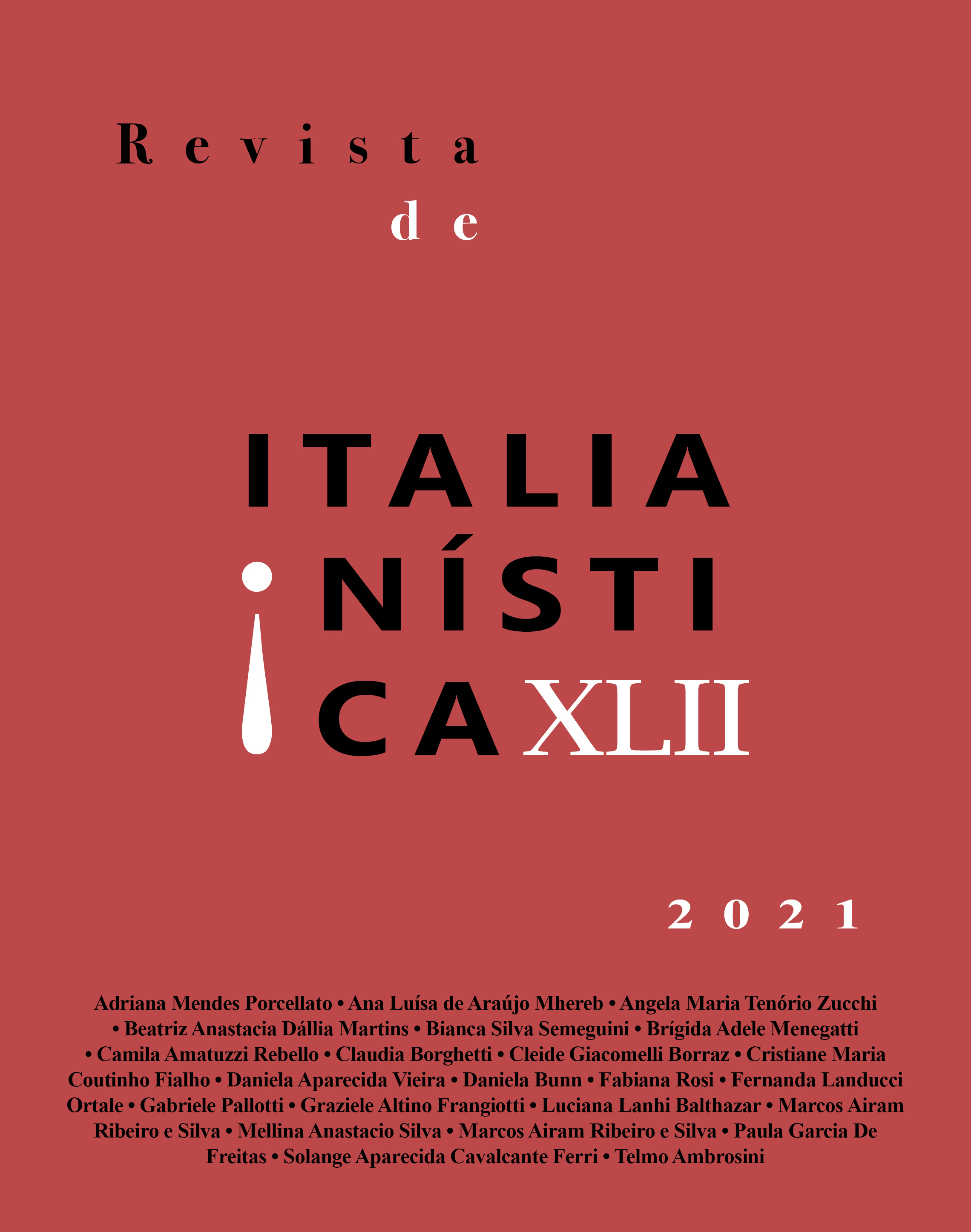The Flipped Classroom and the Ludic Pedagogy in an Italian Remote Learning Program: Proposed Activities
DOI:
https://doi.org/10.11606/issn.2238-8281.i42p92-112Keywords:
Active methodologies, Remote learning, Flipped classroom, Ludic pedagogy, EngagementAbstract
This article aims to present the activities that made possible the interaction among the students enrolled in the extension project Italiano per Tutti, performed online for two semesters. The course was divided into synchronous classes, via Zoom, and asynchronous classes, given and made available on Moodle. The classes addressed, in addition to basic notions of Italian language, also (inter)cultural topics. The guiding principles were based on Active Methodologies (VALENTE, 2014), with emphasis on the concept of Inverted/Flipped Classroom (BERGMANN, 2016; LACERDA, 2018) and on the use of Ludic Pedagogy (PESSOLANO, 2018), so that the proposed activities could instigate students to participate more actively in the learning process (SILVA, 2004). We intended to analyze such activities emphasizing their elaboration and practical use, as well as the reflection on the importance of ludic in remote learning.
Downloads
References
BERGMANN, J.; SAMS, A. Sala de aula invertida: uma metodologia ativa de aprendizagem. Rio
de Janeiro: LTC, v. 114, 2016. Disponível em: https://curitiba.ifpr.edu.br/wp-content/uploads/2020/08/Sala-de-Aula-Invertida-Uma-metodologia-Ativa-de-Aprendizagem.pdf
BUNN, D. Jogos de linguagem e jogos de movimento: deslocamentos lúdicos na aula de língua italiana. Perspectiva - Revista do Centro de Ciências da Educação, volume 38, n. 2 –, abr./jun. 2020, p. 01-14. Disponível em: https://periodicos.ufsc.br/index.php/perspectiva/article/view/2175-795X.2020.e66175.
FERNANDES, A. A. M. O ensino da língua inglesa através da ludicidade. 20 e 21 de outubro de
, p. 67.
LACERDA, R. Jon Bergmann explica o conceito de sala de aula invertida. Desafios da Educação,
Disponível em: <https://desafiosdaeducacao.grupoa.com.br/jon-bergmann-e-a-sala-de-aula-invertida/>. Acesso em: 15 de dezembro de 2020.
MAR, G. D. Jogando para aprender: o lúdico no ensino de línguas. In: Congreso Brasileño De Hispanistas, 2, 2002, San Pablo. Anais online. Associação Brasileira de Hispanistas. Disponível em: http://www.proceedings.scielo.br/scielo.phpscript=sci_arttext&pid=MSC0000000012002000100027&lng=en&nrm=abn.
OLIVEIRA, L. C. Por uma perspectiva plural das línguas estrangeiras na formação escolar. Porto Das Letras, 7(1), 2001, 401-426. Recuperado de https://sistemas.uft.edu.br/periodicos/index.php/portodasletras/article/view/10009.
Revista de Italianística XLII | 2021
PESSOLANO, J.; DALLA CORTE, M. Uma interface entre cultura, motivação e ludicidade no ensino de línguas. Linguagens & Cidadania, v. 3, n. 2, 2001. Disponível em: https://periodicos.ufsm.br/LeC/article/view/31512
SANTOS, T. S. Metodologias ativas de ensino-aprendizagem. 2019. Dissertação (Mestrado profissional em educação profissional e tecnológica) - Instituto Federal de Educação, Ciências e Tecnologia de Pernambuco, Olinda, 2019, disponível em: https://educapes.capes.gov.br/handle/capes/565843
SOUZA, J. M. P.; SALVADOR, M. A. S. O lúdico e as metodologias ativas: possibilidades e limites
nas ações pedagógicas. Rio de Janeiro: Imperial Editora, 2019. Disponível em: https://www.cp2.g12.br/blog/mpcp2/files/2017/02/Produto-Juliana-Marques-2019.pdf
SILVA, G. A. A era do pós método: o professor como intelectual. Linguagens & Cidadania, v. 6, n. 2, jul/dez, 2004. Disponível em: https://periodicos.ufsm.br/LeC/article/view/28979
VALENTE, J. A. Blended learning e as mudanças no ensino superior: a proposta da sala de aula invertida. Educar em revista, n. 4, 2014, p. 79-97.
Downloads
Published
Issue
Section
License
Copyright (c) 2021 Revista de Italianística

This work is licensed under a Creative Commons Attribution-NonCommercial-NoDerivatives 4.0 International License.
A revista retém os direitos patrimoniais dos artigos e os publica simultâneamente sob uma Licença Creative Commons-Atribuição-Não Comercial-Sem Derivações.



